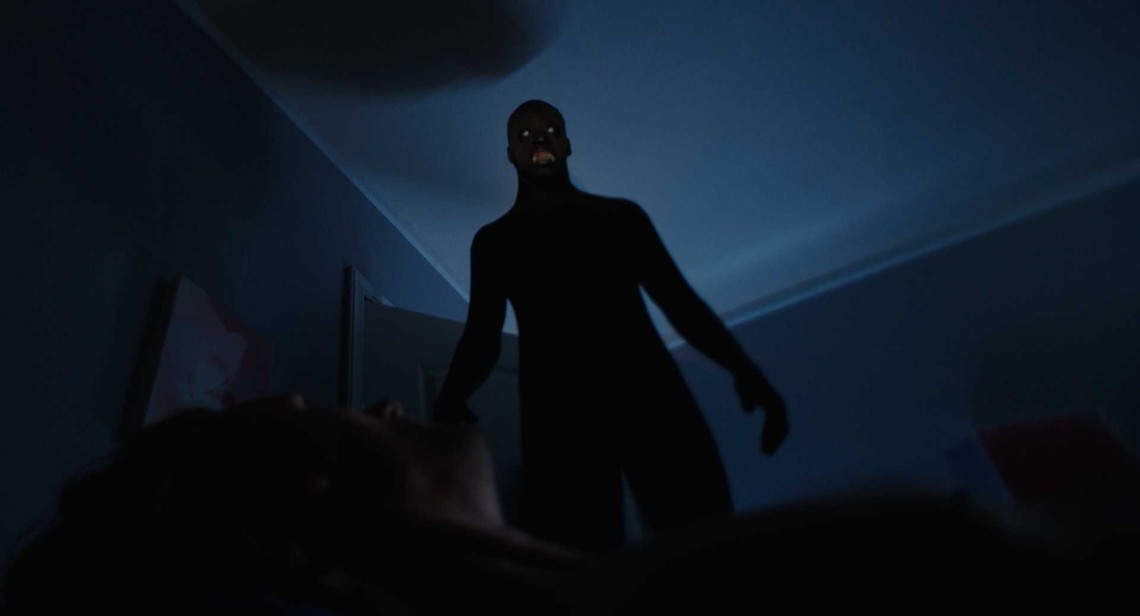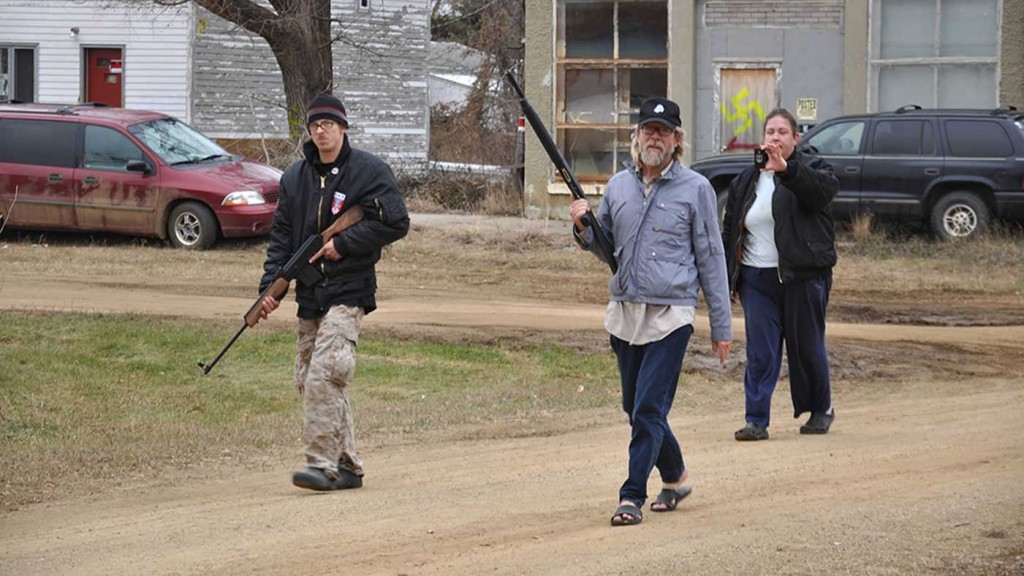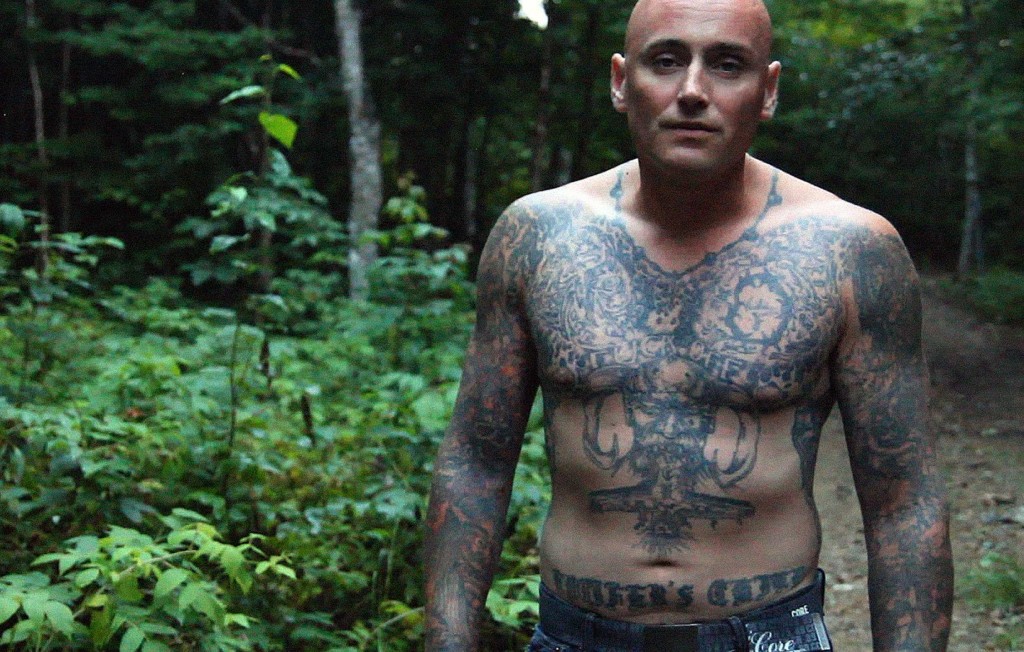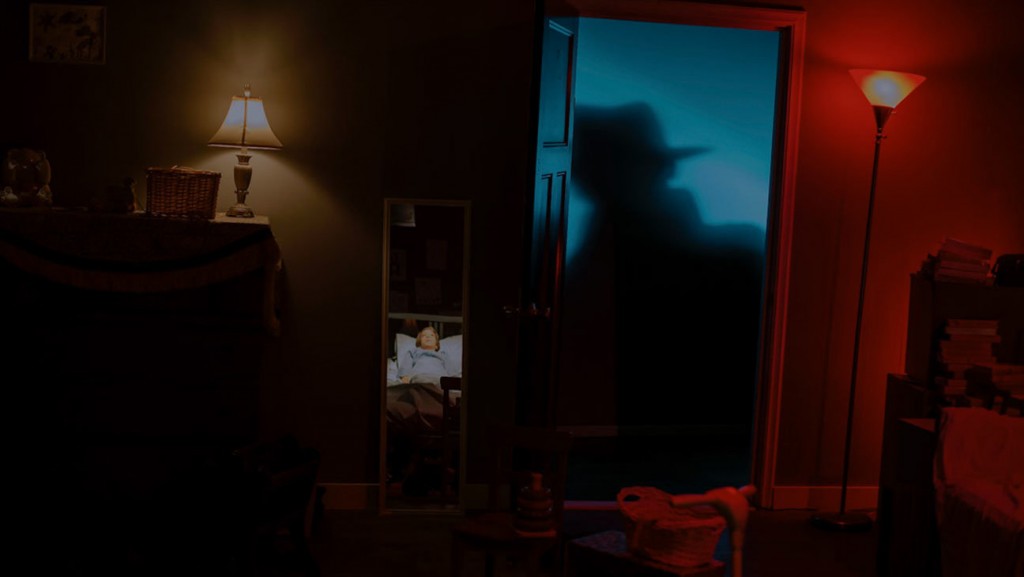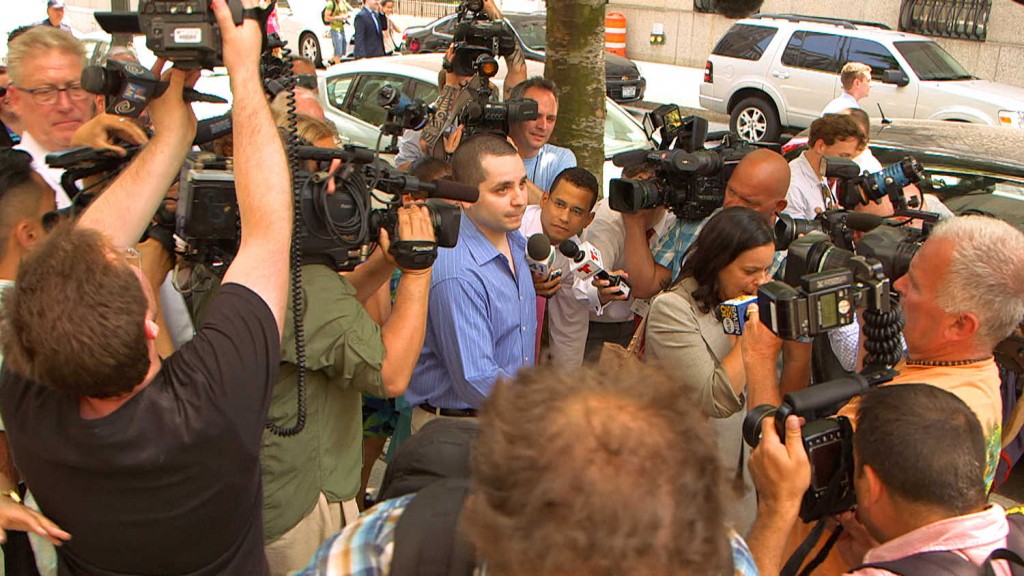When we think about manifestations of evil in the world, we are most comfortable with those that are outside our realm of experience. Monsters in childrens’ stories, corrupt world leaders in faraway places, or flashy serial killers in our primetime TV shows. What about when evil is a little more ordinary? The everyday malevolence that invades our homes, our thoughts, even our dreams? Mallory Andrews and Corey Atad sat down to discuss four films from the 2015 Hot Docs Canadian International Documentary Festival that delved into the disturbing. First up is Michael Beach Nichols and Christopher K. Walker’s Welcome to Leith, about small-town folks in North Dakota who suddenly find themselves with a new neighbor: notorious white supremacist leader Craig Cobb.
Mallory: I think one thing that these documentaries have in common is not so much the banality of evil but the terrifying proximity of evil. Welcome to Leith is literally about what would happen if evil came to live in your neighborhood! It’s a fascinating idea, and there are some amazing moments in the film, but I was left a little disappointed. I guess I was looking for more of a sense of the political temperature of the town before the insurgence of Cobb. What was your experience with it?
Corey: I had some of the same disappointment. While I thought the idea of following this small town through the traumatic event of becoming a focal point for organized racism was interesting, and the filmmaking was solid enough to engage me throughout, it just didn’t go all the way. In fact, I found myself at certain points on the side, constitutionally speaking, of the neo-Nazis. A crazy thing to say, maybe, but in the end the threat they pose the town seems outweighed by the hysteria of the townspeople. That might’ve been an interesting thing to explore, but the film sides so heavily in Leith’s camp that it never dares to ask those sorts of complicated questions.
Mallory: I do think our viewpoints were supposed to waver between the townspeople and Cobb. Not waver in the sense that, wow, maybe white supremacy is for me! But to try and tease out an understanding of why someone would think this way. You hear Kynan Dutton talk about civil rights for whites using the same language that people on the internet use to excuse misogyny (“What about whites?” is not so far away from “What about men’s rights?” or “NOT ALL MEN!”). This type of rhetoric is not just the weapon of a few crazed individuals, there are entire swaths of the population (mostly white and male) who feel genuinely threatened by the very idea that their privileged position may be under attack. And they also feel threatened by the idea that they even have privilege. They don’t see the very thing they benefit from. This is a parallel I found myself drawing from the film, but I’m not entirely sure it’s there in the text.
Corey: Exactly. I think the film presents this story with an eye toward its characters, which is noble, and certainly some of the characters warrant the attention, but in doing so, the ideas and questions raised are ultimately forsaken. The most compelling moments are those you mention, where we get to hear and understand the viewpoint of the white supremacists, and the fallacy of their thinking is exposed with their own words. It often seems the film is too content to then pull back and make them into a boogeyman (or boogeymen), rather than fully engage their ideas. And that’s not to mention the role of media hysteria, crazy American gun laws, and even town zoning issues that might’ve been fascinating to get into.
Mallory: As well as blatantly misunderstanding their First Amendment rights.
Corey: That’s precisely what was running through my mind while watching. Where is the in-depth discussion of First Amendment rights, and how do those bump up against hate speech or incitement laws? It’s a difficult line of questioning to tackle, but I wished the film had the courage to get there.
Mallory: Exploring what it means to have the right to think and speak your ideas freely is something that I was also left disappointed by in Deprogrammed, Mia Donovan’s movie about the cult victim deprogrammer Ted Patrick and the ethics of his self-taught techniques. But oddly enough, here I think the personal approach was the wrong one. I found myself wanting more of a procedural, digging into the step-by-step process that Patrick designed to undo a cult’s ideological programming. We see bits and pieces here and there, and hear some witness testimony, but I wanted some nitty-gritty details.
Corey: Sounds like you and I are in sync on this one. It probably didn’t help that I’d just recently seen Riley Stearns’ film Faults, which follows a Ted Patrick-like character as he tries to deprogram a young woman and rescue her from a cult. That film was fictional, but it really got into the weeds of the process, a lot of which I recognized in this documentary. The one really interesting area I thought the documentary shone a light on, which I’d never known about, was the prevalence of Christian-based cults in the black community prior to the 1960s explosion of California cults among disenchanted middle-class white kids. I wanted to know more about that.
Mallory: Right, it’s difficult to forget in our time when Tom Cruise’s couch-jumping Scientology antics have become something of a punchline. In the late 1960s and early 1970s, the prevalence of Christian-based religious fervour was not fringe. This was a time where we had things like Godspell and Jesus Christ Superstar making its way into the mainstream. Deprogrammed also touched upon the right to hold certain ideas and values—I think Patrick’s “I have a PhD in common sense” was quite an indictment of the black-and-white way of looking at cults. How can a “I know it when I see it” position be considered at all morally objective?
Corey: To be fair, the film doesn’t take Patrick’s ideas and practices as obviously correct or even right. The ambiguity of what he does is exactly the point, and to that degree I appreciated its outlook. The problem, as you indicated before, is that almost every time it begins interrogating those ambiguities, the film digresses into more personal anecdotes and talking heads describing their feelings and their experiences. There’s a point where that kind of personal approach loses value. The ethical and legal ramifications of forced deprogramming didn’t get their due.
Mallory: And I think the structure of the film was a bit off for me. The way Donovan weaved witness testimony throughout was a bit unbalanced. Just when you thought you’d met all the key players, she’d introduce a new one. There was little dramatic tension, which seems a funny thing to ask of a non-fiction film, I know, but it’s something that I always appreciate in documentary—not necessarily what’s the most truthful way to tell this story, but what’s the most effective and impactful way. That was a big weakness for me here.
Corey: Agreed, and it’s a weakness which I think wasn’t present in The Nightmare, the new Rodney Ascher film about the frightening visions experienced by people who suffer from sleep paralysis. It in some ways has all the same potential pitfalls we’re talking about (too personal, too anecdotal, little interrogation of facts or science), but through its impressive technique offers something few docs do: an experience. It’s all about putting you in the mindset of the people suffering night terrors and sleep paralysis, and the dream re-enactments, and just the whole style of the thing, make it akin to horror.
Mallory: I could have done with a bit more scientific interrogation. Are there really no psychologists or neurologists out there on the cutting edge of sleep paralysis research? I get that it’s not really Ascher’s point, but I was left with questions. It’s fascinating to see common images and sensations repeated between disparate people. There is so much variation in what we as individuals think is funny, or sad, or even a turn-on, but there is a much smaller taxonomy of creepy images. I mean, right beside me is a Blu-ray of The Exorcist, with that iconic shot of Merrin in silhouette in wearing a hat, which is a repeated shadowy figure in The Nightmare! Why are these terrifying images so similar? I wanted answers!
Corey: Somewhere out there is a colder, more clinical documentary to be made about the psychology and Jungian phenomenon of sleep paralysis, and while watching The Nightmare I did find myself asking those same questions. The conclusion I came to, though, was that I appreciated the film’s lack of interest in demystifying its subject. It’s the opposite of what most documentaries do, but it works here to empathic ends. There’s no science on the planet that will comfort a person suffering from extreme night terrors. It’s just the reality of their lives, and as viewers we’re fully brought into that.
Mallory: I don’t begrudge the experience of the film at all. I found it extremely effective at times, and I found myself dreading certain subjects’ dreams, as they hit some deep-seated childhood fears of mine (someone tapping on the window in the middle of the night!). But Ascher’s ensemble-structure started to get a bit tiresome after a while, and I would have loved something to break up the tension of seeing one nightmare after another. However, I do look forward to seeing how it fares on repeat viewings. Will the experience withstand knowing what will happen next?
Corey: That’s a good question, and if I’m being honest, I doubt it will hold up. Some of the images Ascher creates are still stuck in my head a couple days later, though. He’s onto something there. You also saw another film that I wasn’t able to get to.
Mallory: Thought Crimes, Erin Lee Carr’s doc on the court case of Gilberto Valle, aka “the Cannibal Cop.” This was the New York cop whose wife discovered he had been frequenting a chat room where he and others constructed elaborate fantasies of kidnapping women, then raping, cooking them alive, and eating them. Talk about images that stick in your head!
Corey: Oh my God.
Mallory: The thing is, he never acted on any of these impulses. But he was brought to trial for conspiracy to commit kidnapping, because he used his access to the police database to search for women–including some of his old college friends. Here we have a dilemma about whether or not you can convict someone for what they think. I think Carr does a really amazing job at exploring the legal ramifications for prosecuting thought crime in the U.S. judicial system. But where she falters is her coverage of Valle himself. She becomes quite close with him and his mother. That kind of access is gold for producing compelling material, but it did lead to some tonally inconsistent moments. A lot of Hannibal-style cutting between disturbing images from the chat room to Valle cooking dinner, for example.
Corey: So maybe the lesson from all these films is that documentarians need to be careful about getting too close to the people they get access to?
Mallory: Maybe not so prescriptive as that. Like I said above, consider the most impactful way to present your story, not necessarily the most truthful, or even the most objective. Like a professor of mine used to always say, you have the “what,” but don’t forget the “so what?”

















